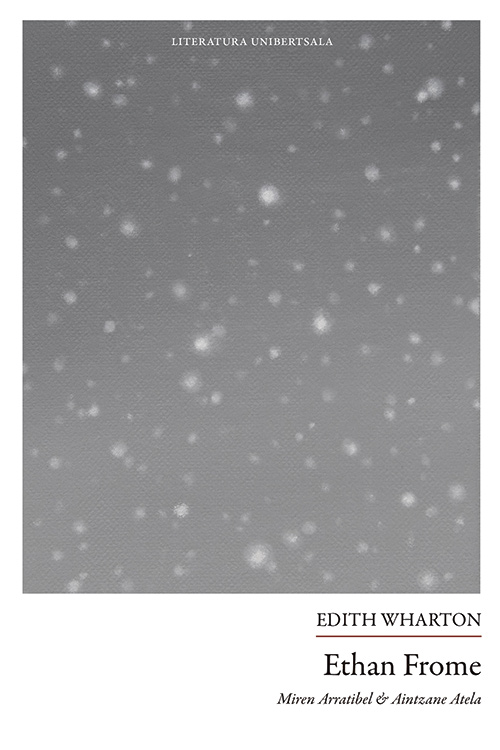
Before reading Etham Frome de Wharton, the reader will find two prologues: the first, an explanatory introduction written by the translators themselves, which in addition to collecting some contexts and biographical data of the author, perform a detailed analysis of the book; and the second, a very interesting prologue made by the author. In fact, some writers used it (or do they have it?) uses the strategy: an impostable humility persists (my only merit is perhaps to have perceived that the procedure used in these works could also apply to my simple account) to continue doing what is not expected of him: he writes.
The first sentence of the book has caught me. As soon as I've read, I've wanted to know what that story is that has heard so much narrative from parts and so many times from many people's mouths. The phrase is intriguing, mysterious. But in addition to this explicit information, people place us in a known space. Probably in a small town, probably in the rural environment.
Wharton (one of the most important writers for many reasons XX.mendeko) is right in many things, but shines especially on the tension and balance between the characters. The narrative voice is the third omniscient person; it is the voice of authority, which all know, among other things, the difference between what they say and (especially) silence the characters or what they say, what they half-show and what they do. The voice makes us accomplices and testimonies of what we are reading.
Ethan Frome must choose between two women: her wife, the complaint and the dark Zeena, she does not love (XIX). It can be an example of the angel of the house of the century) and Mattie, young, filled with joy of living XX.mende, an example of the initial warm woman. As the book progresses, intensity increases and Zeena's mistrust and jealousy, Ethan Fome's blunt inner struggle and Mattie's falling in love create an atomic state.
It is an ingenious book, full of irony and ability to face a profound moral dilemma. It has a slow pace, but the element of intrigue helps us move forward and reads very well.
This book is another example of the boom we have seen in recent years (by the way, let us say it is absolutely necessary and unfortunately insufficient): one more step in the possibility of reading in Basque the universal literature created by women. See Arratibel and Aintzane Atela have carried out a professional work as a bridge to the Basque country.
"Ask for your turn and we'll join you," the willing and cheerful announcer who speaks from the studios tells the young correspondent who walks through the streets of Bilbao. The presenter immediately addressed the audience. "In the meantime, we are going to Pamplona..." They opened... [+]
Until now we have believed that those in charge of copying books during the Middle Ages and before the printing press was opened were men, specifically monks of monasteries.
But a group of researchers from the University of Bergen, Norway, concludes that women also worked as... [+]
Florentzia, 1886. Carlo Collodi Le avventure de Pinocchio eleberri ezagunaren egileak zera idatzi zuen pizzari buruz: “Labean txigortutako ogi orea, gainean eskura dagoen edozer gauzaz egindako saltsa duena”. Pizza hark “zikinkeria konplexu tankera” zuela... [+]